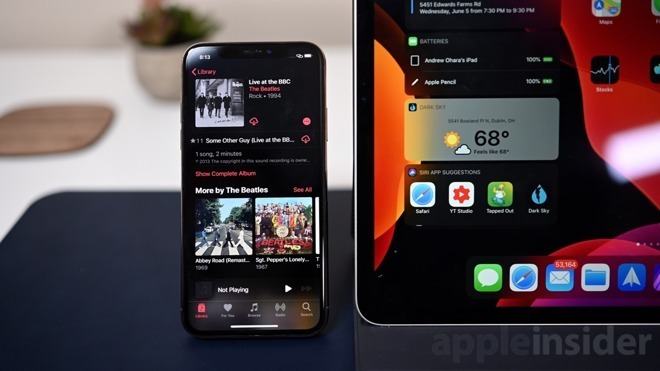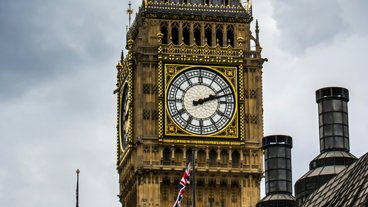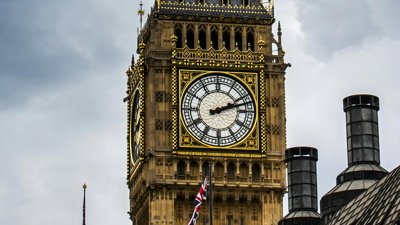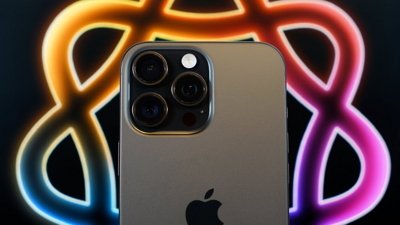U.S. lawmakers in charge of a sprawling antitrust probe into "Big Tech" are scrutinizing a number of privacy-minded improvements Apple rolled out as part of iOS 13, including restrictions pertaining to location data, noting the new limitations are not applied to first-party apps and services.
As detailed by The Washington Post on Tuesday, members of the House Judiciary antitrust subcommittee reviewing new privacy practices introduced with iOS 13 have turned their attention to location tracking features. More specifically, lawmakers are concerned that Apple's new technology, which restricts third-party access to device tracking assets, amounts to anti-competitive behavior.
"I'm increasingly concerned about the use of privacy as a shield for anti-competitive conduct," said Rep. David Cicilline (D-R.I), chairman of the House Judiciary antitrust subcommittee. "There is a growing risk that without a strong privacy law in the United States, platforms will exploit their role as de facto private regulators by placing a thumb on the scale in their own favor."
With the latest iOS, Apple has greatly reduced the ability for users to inadvertently enable location tracking features while at the same time enhancing user control over data sharing. Previously, third-party apps could request persistent device location data upon initial setup, but iOS 13 removes that ability. Further, when always-on tracking is manually enabled in the Settings menu, a pop-up window periodically appears to remind users of the configuration and provides an option to turn it off.
Apple does not apply those same safeguards to its own properties like Maps or the newly redesigned Find My app. Additionally, the company does not inform device owners that their hardware will be used for a new crowdsourced "offline finding" feature capable of tracking iPhone, iPad and Mac even when those devices are not attached to a network. Instead of notifying customers of the feature in a pop-up window, as is required for third-party developers, the offline finding feature is buried in the Find My app's terms of use.
Critics of Apple's new policies cry foul and say the limitations are tantamount to anti-competitive behavior.
In August, a group of developers sent a joint letter to Apple CEO Tim Cook to voice criticism of the tech giant's regulations, saying they amount to a dangerous "double standard" that negatively impacts their collective businesses. Life360 CEO Chris Hulls and Tile CEO CJ Prober were among the signatories, both of which market products and services that are heavily reliant on always-on location tracking. Arity president Gary Hallgren, Happn CEO Didier Rappaport, Twenty chief strategy officer Jared Allgood, Zendrive CEO Jonathan Matus and Zenly CEO Antoine Martin also signed the letter.
Apple spokeswoman Trudy Muller told The Post the company is working with developers who are concerned about the new location-tracking features.
"We created the App Store with two goals in mind: that it be a safe and trusted place for customers to discover and download apps, and a great business opportunity for all developers," Muller said. "We continually work with developers and take their feedback on how to help protect user privacy while also providing the tools developers need to make the best app experiences."
Citing sources, the report notes legislators are meeting with Apple partners to hear their concerns, including recent privacy-related changes to App Store guidelines.
Along with location tracking, the House is examining App Store commissions, so-called "Sherlocking" of third-party apps and features, and stringent regulations applied to parental control apps.
 Mikey Campbell
Mikey Campbell

-xl-(1)-xl-xl-m.jpg)





-m.jpg)






 Amber Neely
Amber Neely
 Wesley Hilliard
Wesley Hilliard
 Marko Zivkovic
Marko Zivkovic
 Andrew Orr
Andrew Orr
 Malcolm Owen
Malcolm Owen


 Andrew O'Hara
Andrew O'Hara






25 Comments
Which is it? Apple prides itself with being secure, contrary to every other operating system and social media company yet Congress complains because they see it as anticompetitive. Congress will never pass a privacy law that benefits the consumer, it will only pass laws that benefit the company buying them off with the most amount of money. Apple is doing Congress' job by building in security and I wish these people in DC had half a brain so they wouldn't make so many stupid comments. Of course there are those who think Apple should open everything up so every developer can put whatever crap they want on an iPhone. Sorry, but iPhone users want a secure system and are tired of all the garbage we already have to put up with arriving by email and through phone calls. What doesn't Congress enforce and upgrade laws against SPAM email and calls. That would benefit consumers a whole lot more than worrying about a few companies who want to know where you are every second of the day and more than likely will end up selling this information to jerks like Facebook and Google for targeted ads.
“Big Tech” has become the new universal scapegoat campaign stump speech. Instead of doing anything meaningful, Congress is trying to distract people by pointing at “Big Tech” as the source of all your issues. From high cost of living, homelessness, censorship, privacy, tax avoidance.... if we simply destroy “Big Tech” your life will be better.
Life seems so much easier when you’re small, and you can run your business the way you created it without all those armchair CEOs and “but what about the children” pseudo-benefactors.
Don’t like it? Develop for Android. I’ve been reminded they’re “winning.”
The location sharing data is clearly disclosed when you set up your phone and you have the option for turning it off as well - I guess I don't see what the issue is